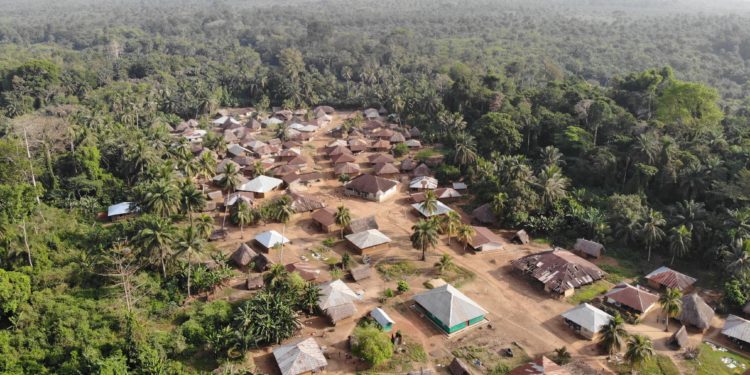Recently certified as sustainable by the world’s leading sustainable palm oil body, the RSPO, Socfin Agriculture Company and its plantation in Sierra Leone continue to face allegations of land grabbing, corruption and disruption of local economies.
By Abdul Brima
It was a windy afternoon with the radiant sun shining through branches of trees hovering over one of the few remaining communities in the Malen chiefdom that still boasts of untouched farmlands. The small farming community of Jao, to the northeast of Socfin Agricultural Company’s plantation in Sahn Malen chiefdom Pujehun district, southern Sierra Leone, sits plainly on a small hill overlooking a vast area.

Somewhere in the middle of this bushland is Bockarie Landa’s own small oil palm plantation. Landa has a wife and five children and palm oil is what they process to earn a living. On a busy afternoon, Landa navigates his way delicately through the thick bush with a bunch of palm fruit strapped to a marchetti. Though it was not easy, Landa and most of the people here refused to lease their land to Socfin in 2011. The chiefdom council, headed by the paramount chief Victor Kebbie, the main force behind the land deal, made it almost impossible for locals to resist leasing their lands. But Landa and others got the support of the Malen Affected Landowners Association, MALOA, whose members themselves have suffered repeated persecution including jail terms.
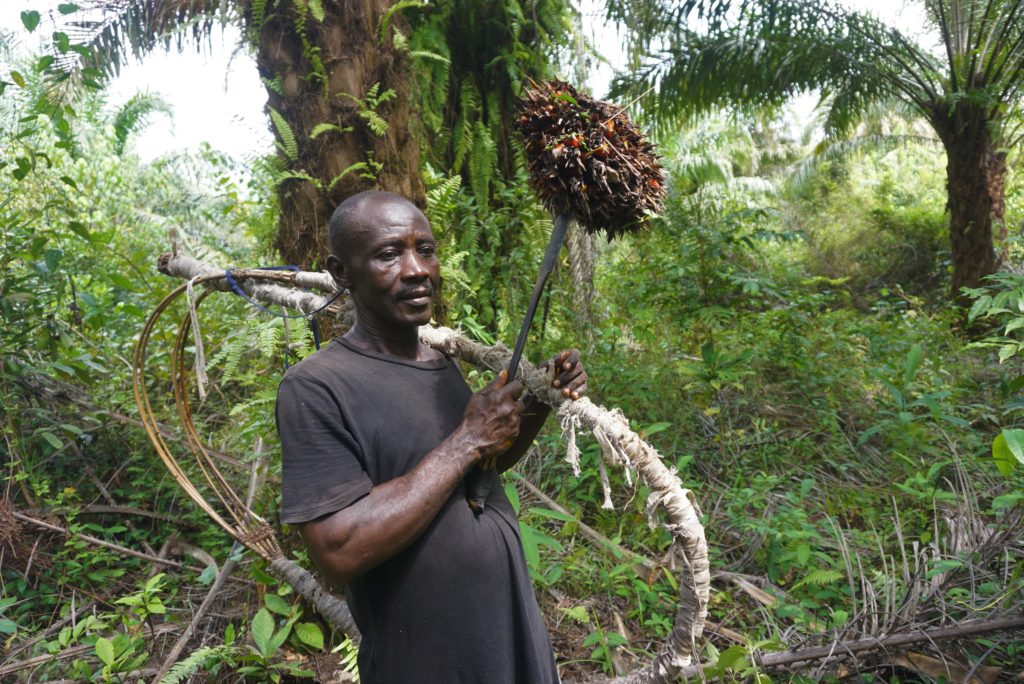
MALOA has led the charge in the fight against what its members describe as plantation injustice, organizing peaceful protests and attracting local and international attention.
The land conflict

Locals have criticized the land deal since its inception. Aggrieved landowners described the deal as lacking in transparency and informed consent and that the compensation on offer for their land was a pittance. As a result, Malen chiefdom has been the epicenter of a decade long land conflict since 2011 when Socfin Agricultural Company (SAC), a subsidiary of agro-industrial multinational the Socfin Group – arrived in the chiefdom after securing a 50-year land lease agreement with the government of Sierra Leone and the local authorities.
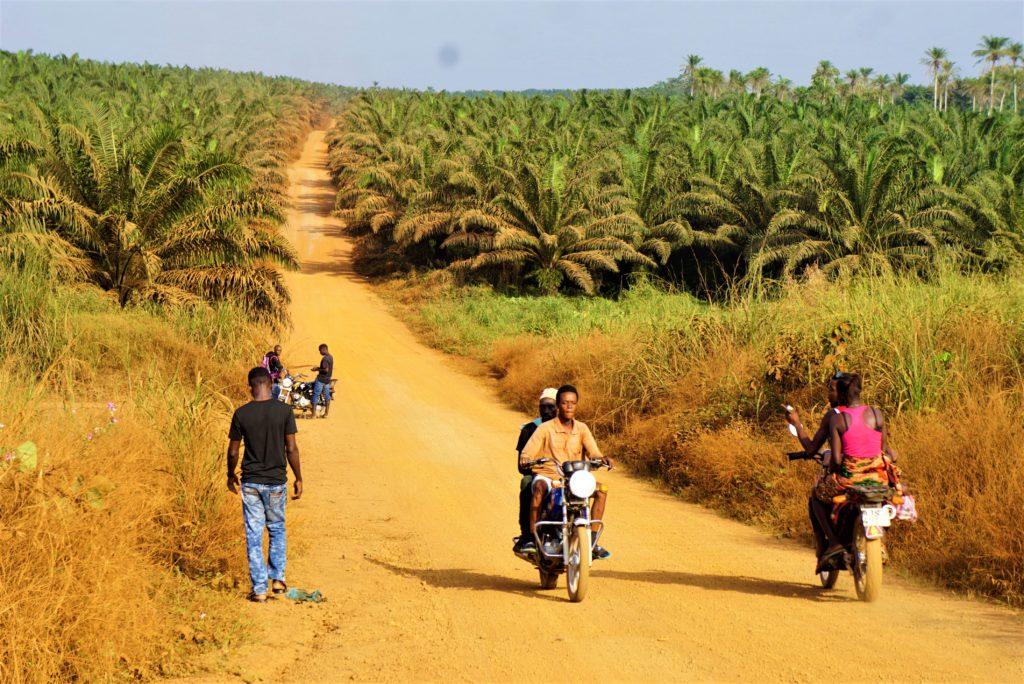
In the original lease agreement, SAC secured 16,248.54 acres (nearly 6,576 hectares). But, additional agreements over the years have seen a substantial increase of the company’s concession with its plantation covering nearly 70% (just over 18,000 hectares (ha)), of the chiefdom’s total area of 27,000 ha. The past eleven years has seen the landscape of Malen chiefdom transformed–gone are the once thick farm bushes that were typical of this region, replaced by thousands of hectares of monoculture oil palms.

To this day, the exact number of households or individuals affected by SAC’s plantation remains unclear, but what is certain is the real impact the company’s arrival has had on the local palm oil economy and the people who drive it.
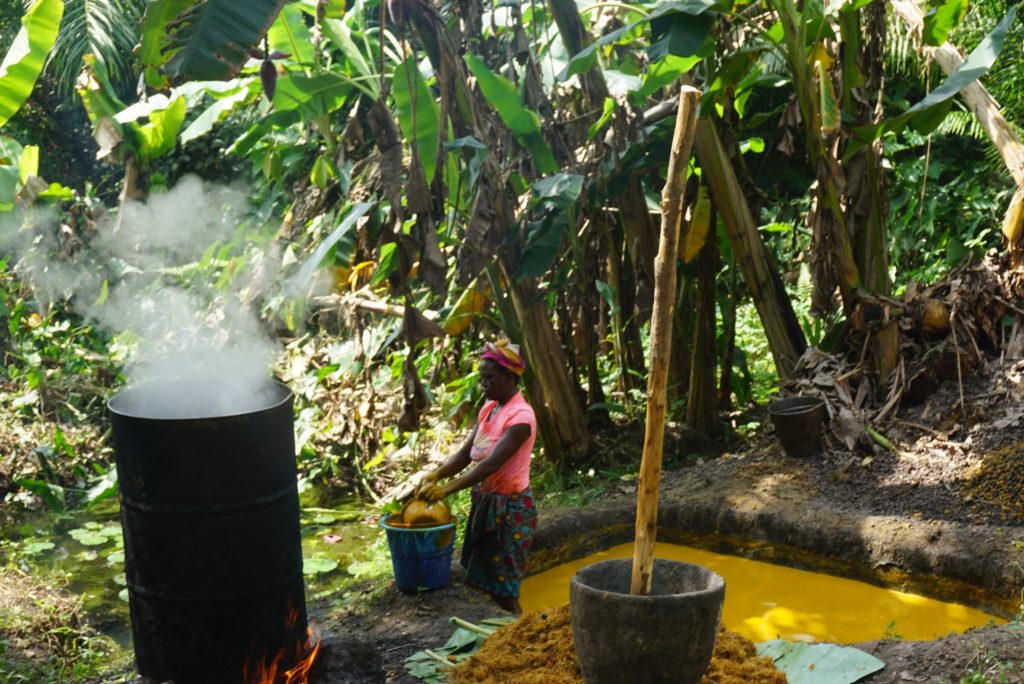
In 2019, the Belgian organization, FIAN, described how the people of Malen grew a variety of nutritious foods and even left land unfarmed to regain its fertility. But all this is no more and the loss of farmlands has dealt a heavy blow to food security in the region, FIAN adds.
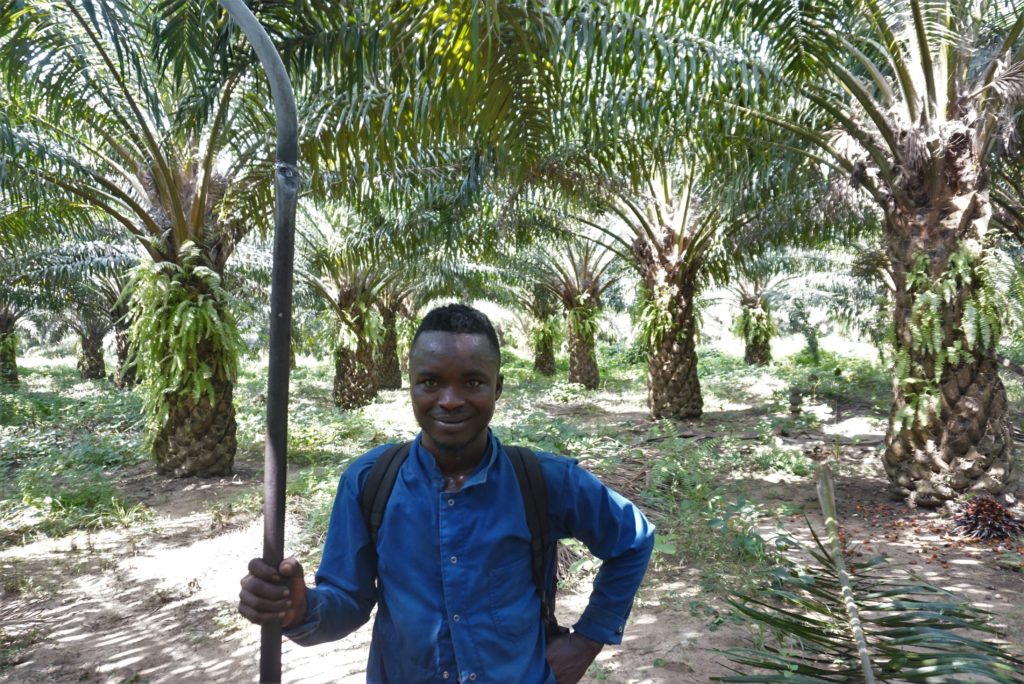
What were once vast stretches of forests and natural vegetation in Malen Chiefdom, Socfin has transformed into thousands of acres of monoculture palm oil plantation with attendant threats to livelihoods and biodiversity for the locals. Photo credits: Abdul Brima
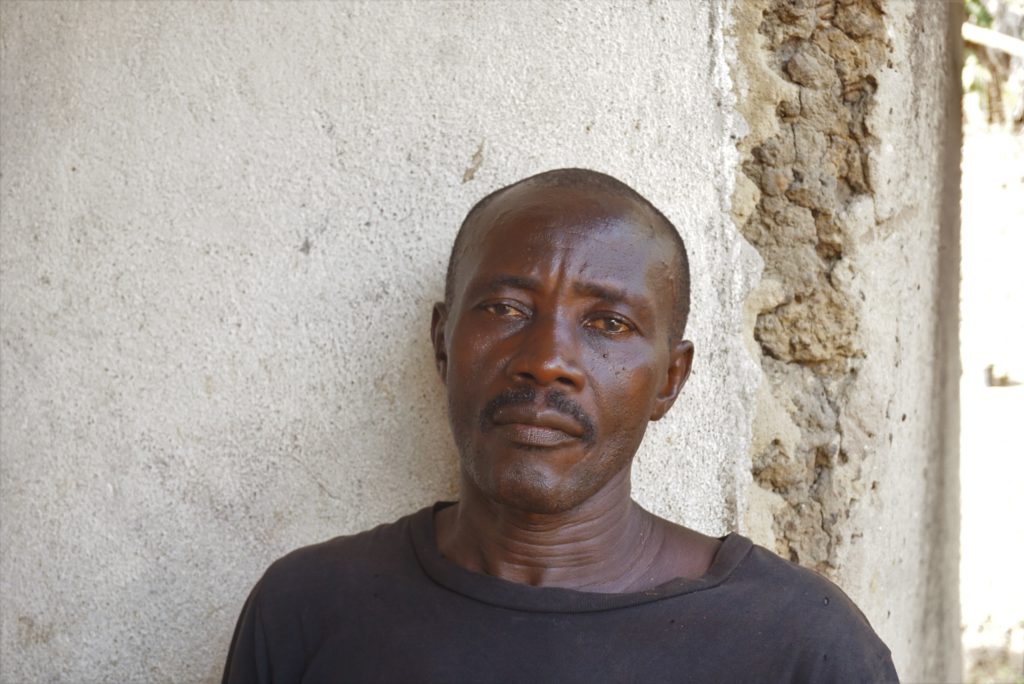
This is why Landa, from Jao village, is disappointed that “to this day the government has not listened to our cries and has instead prioritized the company’s investments at the expense of its people,” he says.
In January 2019, a fatal violence broke out that resulted in the deaths of two men from alleged gunshot wounds. Local and international human rights organizations have since condemned the incident, describing it as a deliberate attempt to intimidate and suppress dissent.
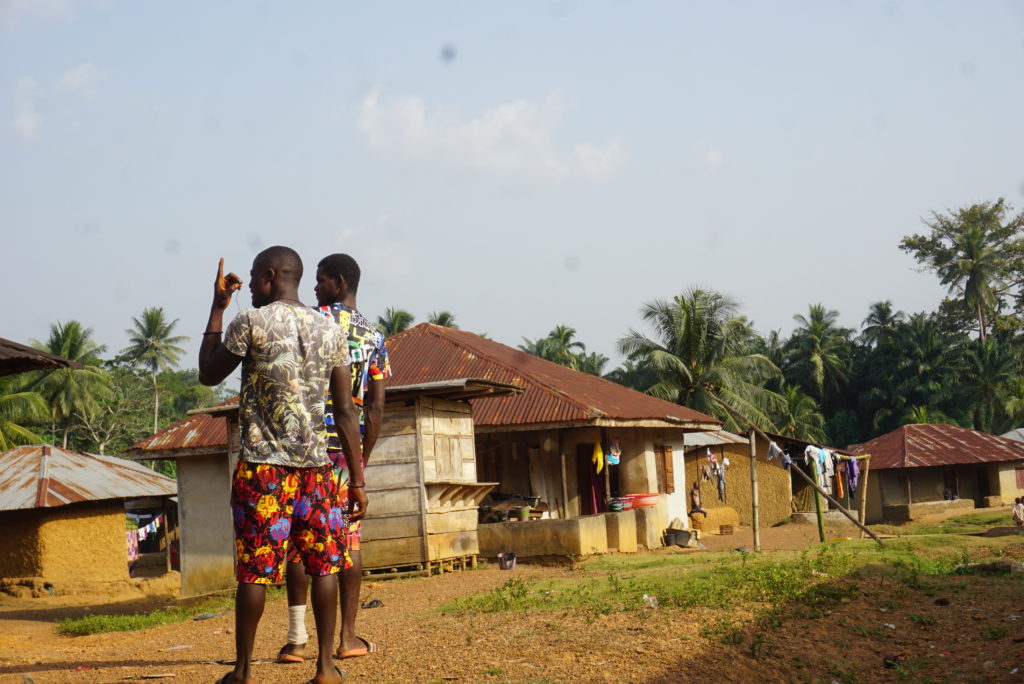
Not all leased their lands
Not all leased their lands
In the face of unrelenting pressure from the government and the chiefdom authorities, people like Landa still managed to keep his land, but this came at a cost. He and others who resisted leasing their lands now face a different battle. They complain of not being allowed to process their small palm oil plantations. Those who manage to are subjected to harassment and accused of stealing palm fruits from SAC. “If we are caught transporting oil, we are arrested and forced to pay hefty fines or risk being thrown into prison,” he says.
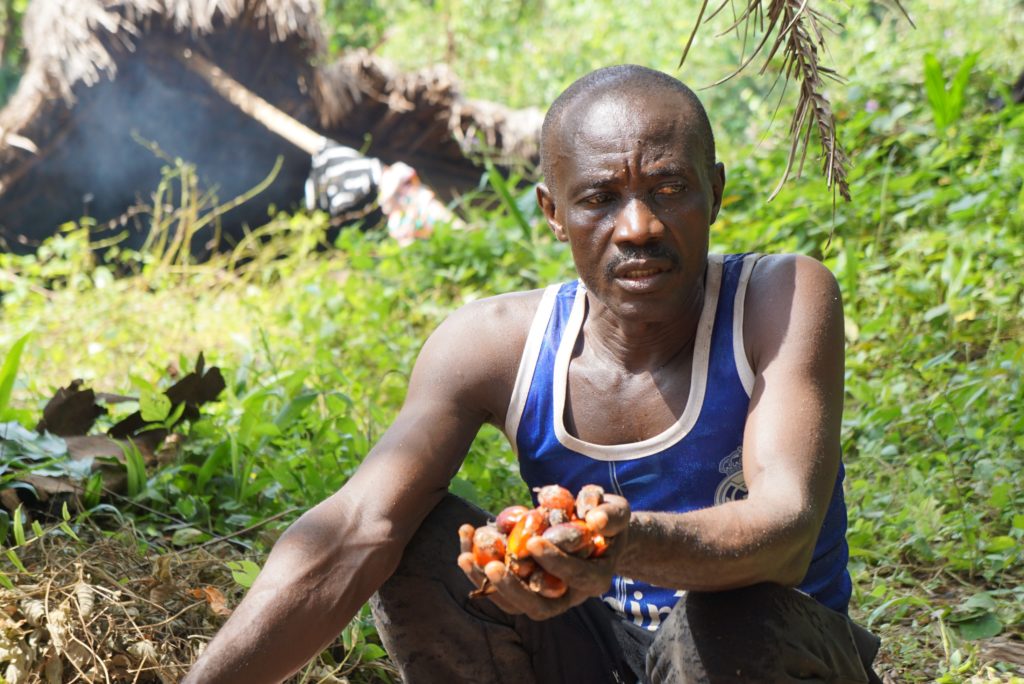
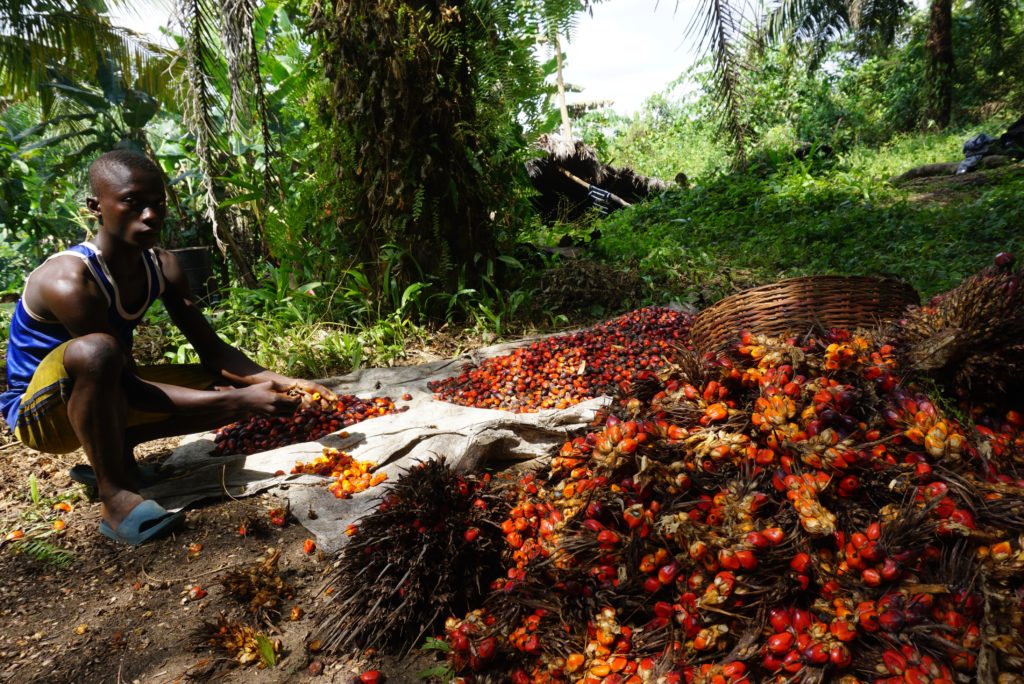
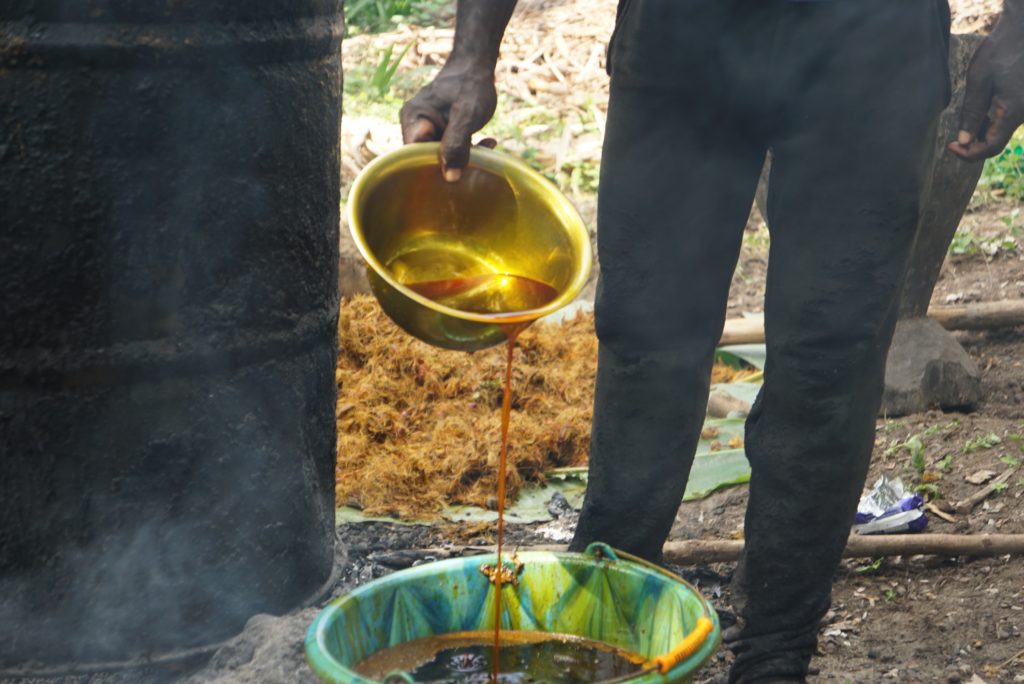
With nowhere to channel their grievances, Landa and many others have resorted to smuggling palm oil in jerry cans across rivers to market centers. “We will have to find a way to make them listen to us, but it is not easy for us right now. If I do not smuggle my oil to the market, my family will starve,” he says.
Women bear the cost
Before the industrial plantation, palm oil was produced locally by smallholders using traditional methods with women providing most of the labor. This meant that households had enough to eat, sell and to reserve. Women, in particular, have traditionally gained a great deal of social prestige from producing palm oil, since it is they who drive the local economy.
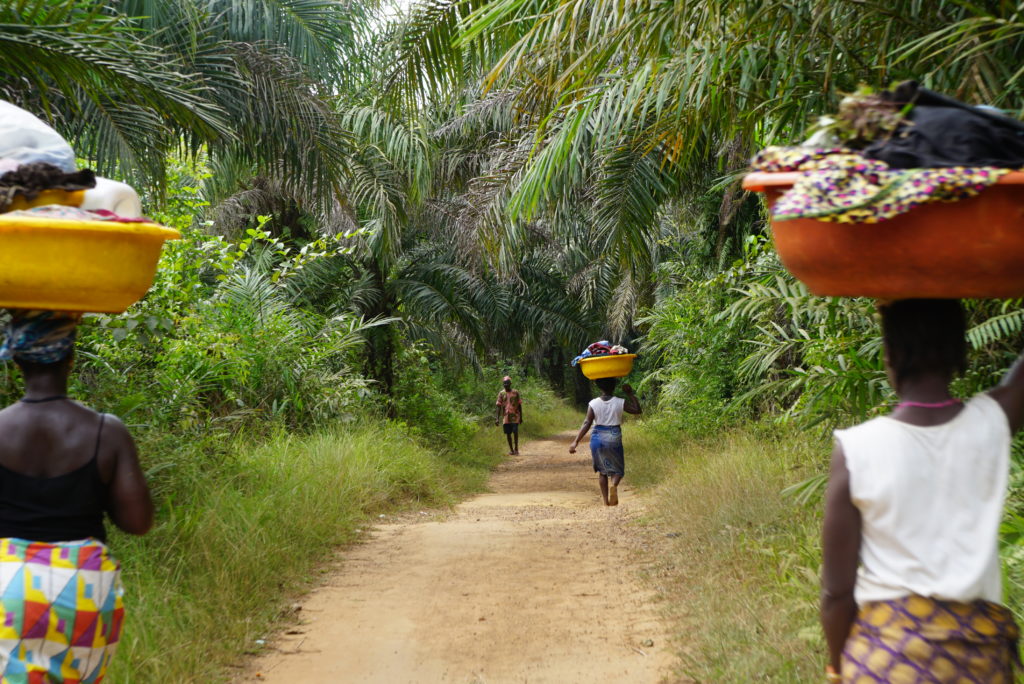
But their struggle began in 2015 when SAC established its oil processing mill in the Malen area, which is expected to produce over 45,000 metric tons of crude palm oil this year, according to the Roundtable on Sustainable Palm Oil. Things have changed since then.
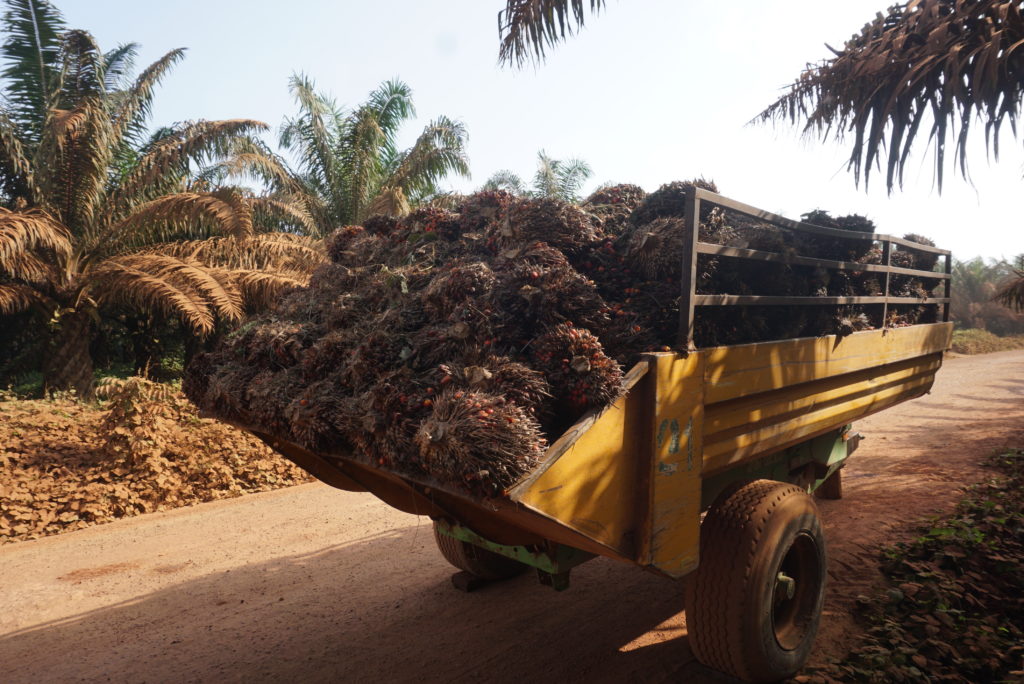
The deficit of what in Sierra Leone is an essential part of daily diet is undoubtedly apparent in its high cost. A pint of palm oil has more than tripled in just over a decade; sold now at 6,000 Leones ($USD 0.48) in local markets.
Women who relied on palm oil as a main source of income can no longer process enough to eat or sell, which means that those without alternatives struggle to afford enough food, pay medical bills and school fees.
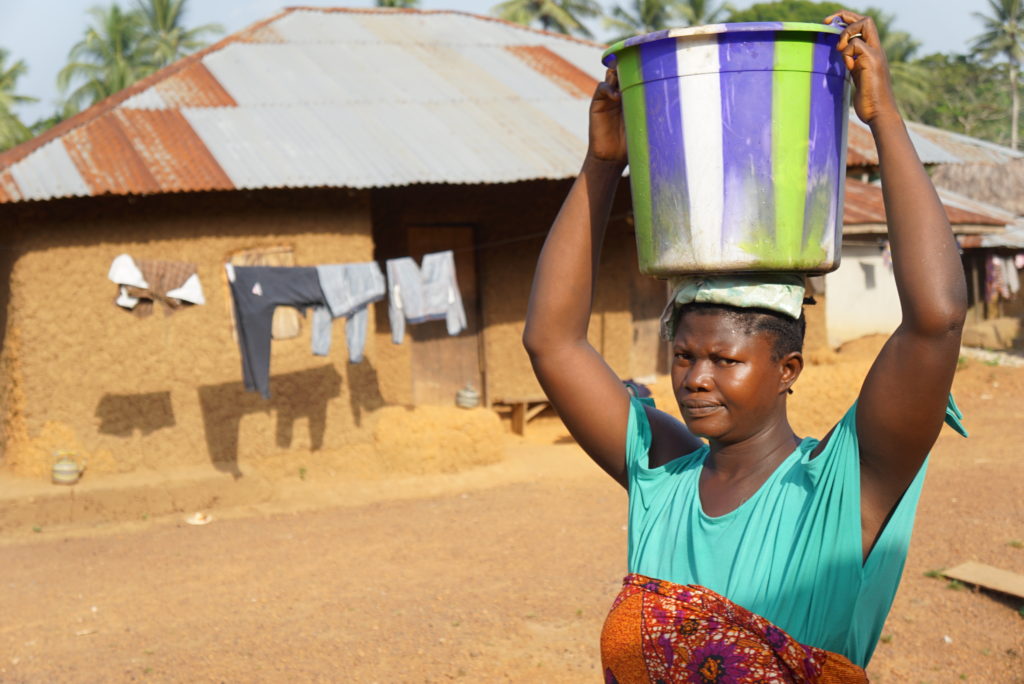
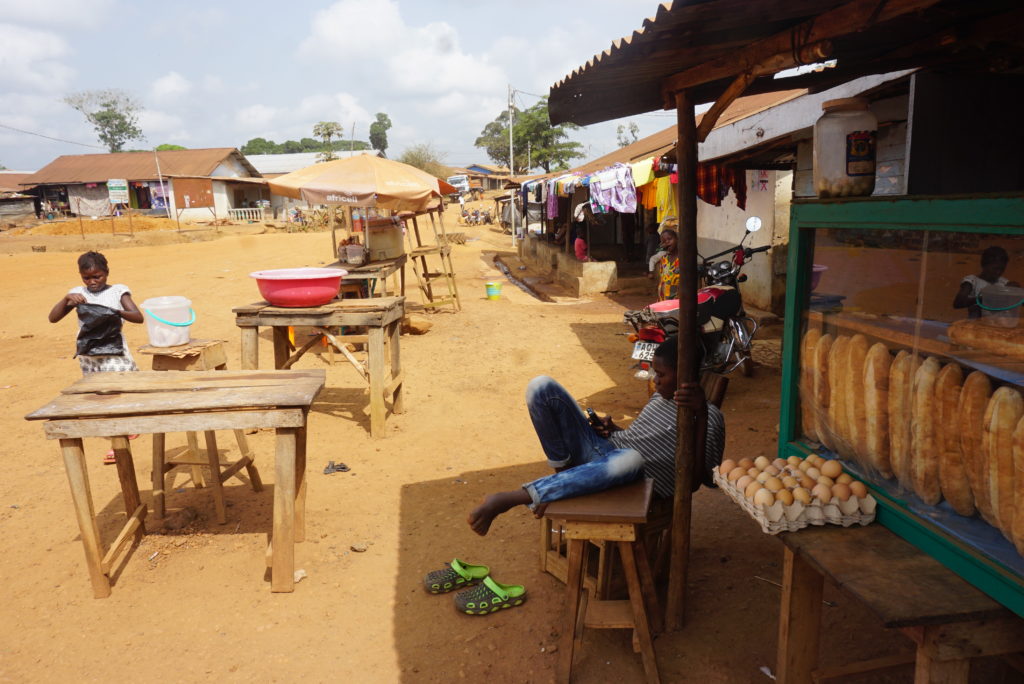
Hawa Koroma, a widow in her early sixties, has suffered traumatic experiences since she reluctantly leased her land to SAC in 2012.
“I could have lost both the land and the small money on offer if I had resisted signing the deal. I had no choice,” she said.
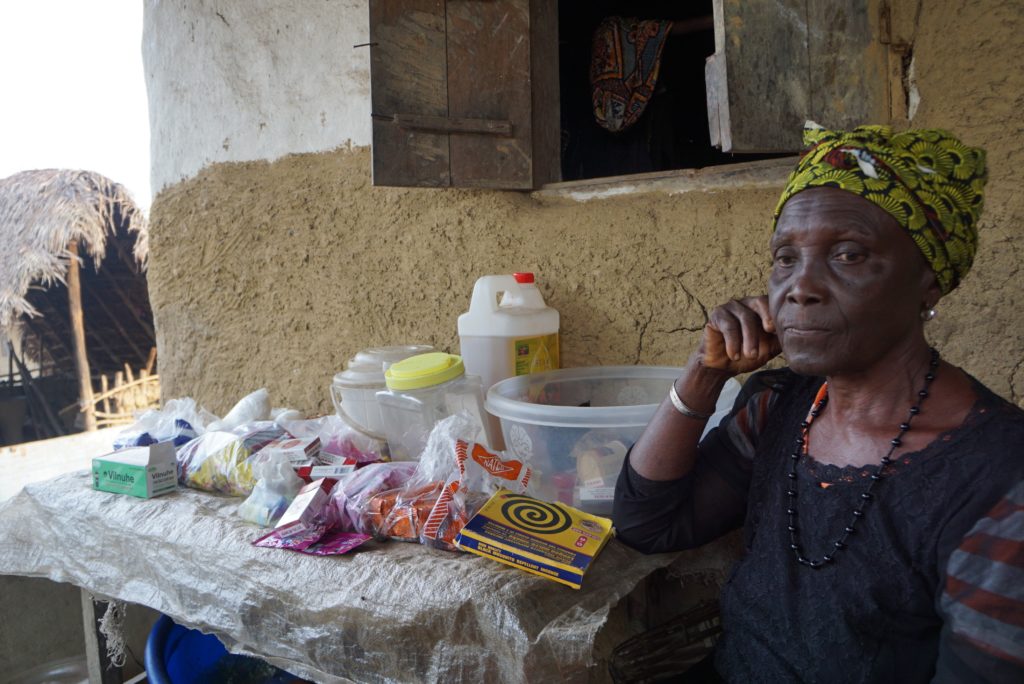
Koroma received USD$200, which is now equivalent to 2,644,000 (two million six hundred and forty four thousand Leones), for her property. Landowning families in Malen chiefdom were paid a one-off compensation of 1 million Leone (around USD$100) per acre of land by SAC, according to Mongabay. But for a global company that reported a pre-tax profit of 60.5 million euros in 2020, one wonders how the price was decided.
Many people like Koroma now stare in the face of abject poverty as they lost a priced asset that many in her community equate to life itself–palm oil. When she had her land, Koroma could plant different types of crops and processed enough palm oil to sell, which guaranteed her a steady flow of income. Because she no longer has land to farm, she currently runs a makeshift stall in her veranda selling cigarettes and other small food items to cater for her family.
The environmental cost
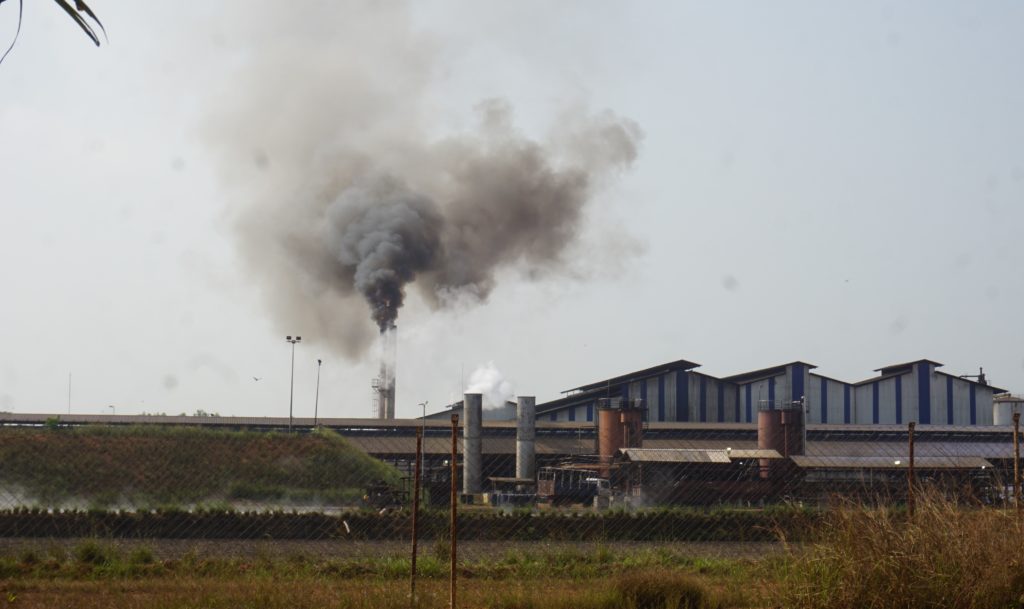
Beyond the loss of farmlands, SAC’s presence in the area also has implications for the environment and forests that once provided bushmeat, fuel and herbal medicines. But more pronounced on the ground and less reported in the media is pollution and the implications it has for the people. The agro-chemicals used on the palms to keep them productive, are considered the main pollutant plus waste from the mill directed through pipes and ponds into swaps and rivers.
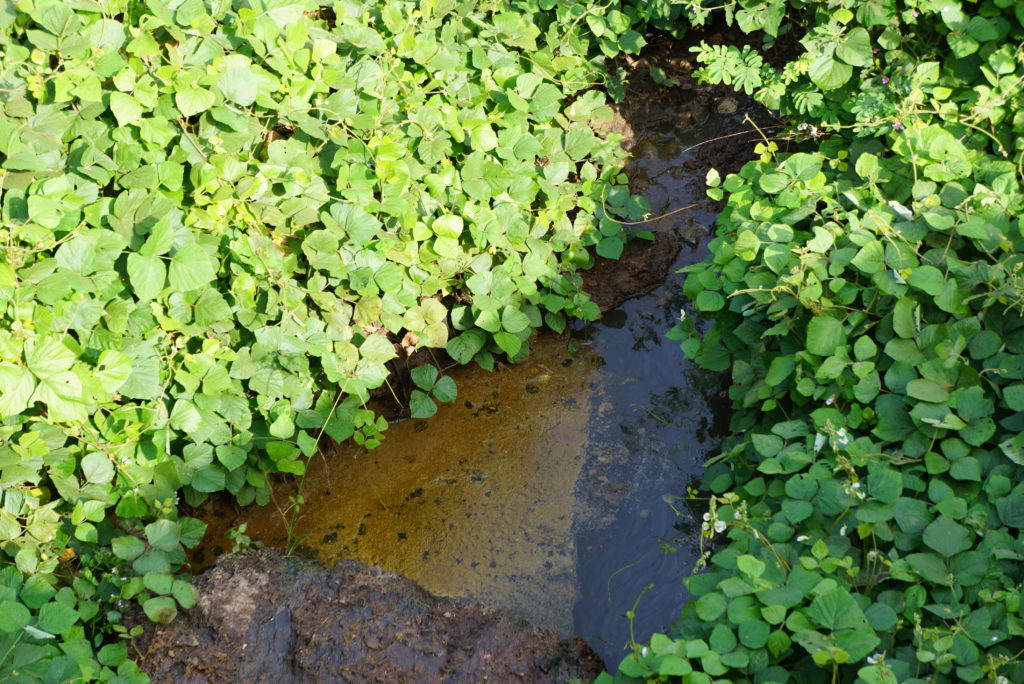
In the interest of environmental safety, both the company’s Environmental, Social and Health Impact Assessment – a necessary precursor to obtaining an environmental license to operate from the government of Sierra Leone – and the RSPO’s Principles & Criteria emphasis the need for buffer zones or greenbelts around the company’s plantations.
The buffer zones were meant to serve as protection of watersheds and for the conservation of climate balances, biodiversity and ecosystem functions. But SAC’s failure to adhere to these safety precautions, is having an effect on rivers and the environment generally.
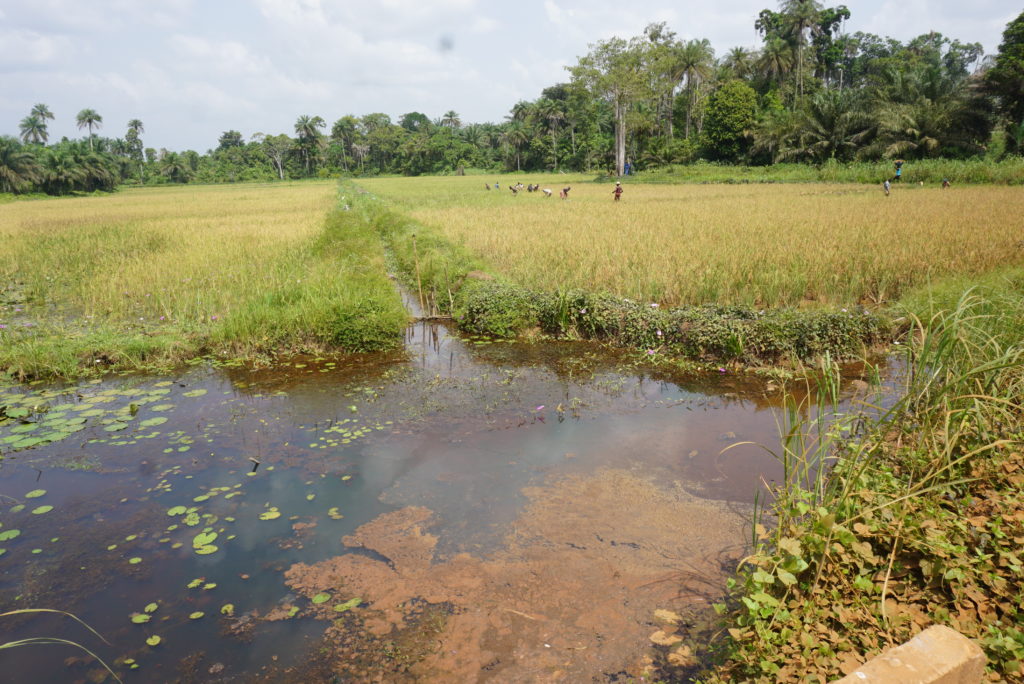
A resident of Massao village, 1.5km from SAC’s mill on the banks of the river Malen, Salia Lebbie, describes how their river is being polluted and “there are times we see dead fish floating and the water changes color to brown,” he says. Lebbie accuses the company of polluting the river by releasing wastes from the mill, through ponds and pipes emptying directly into rivers and swamps.
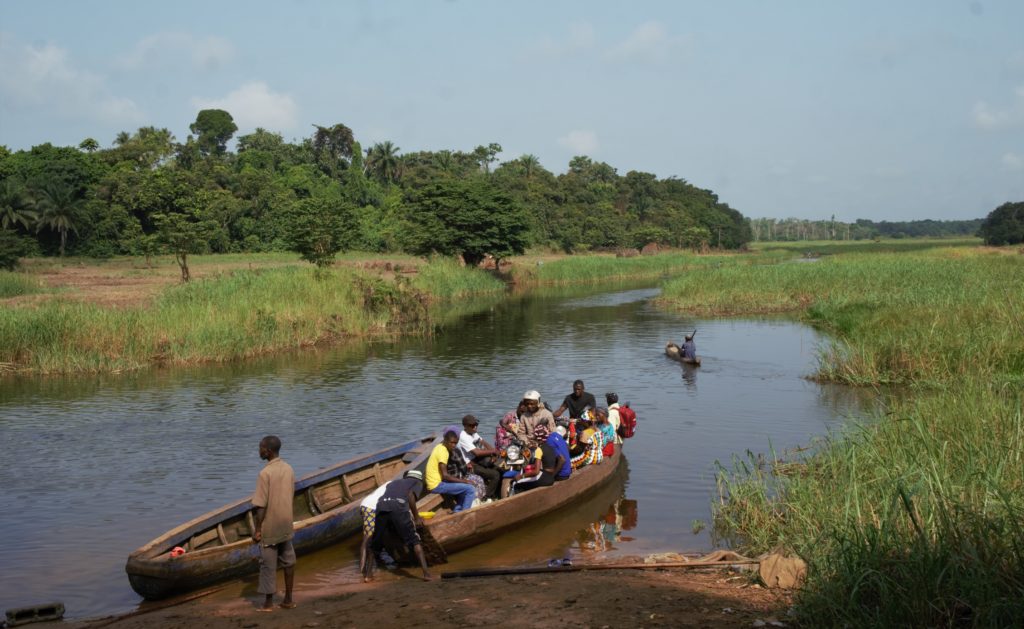
SAC certified as sustainable, only for a while
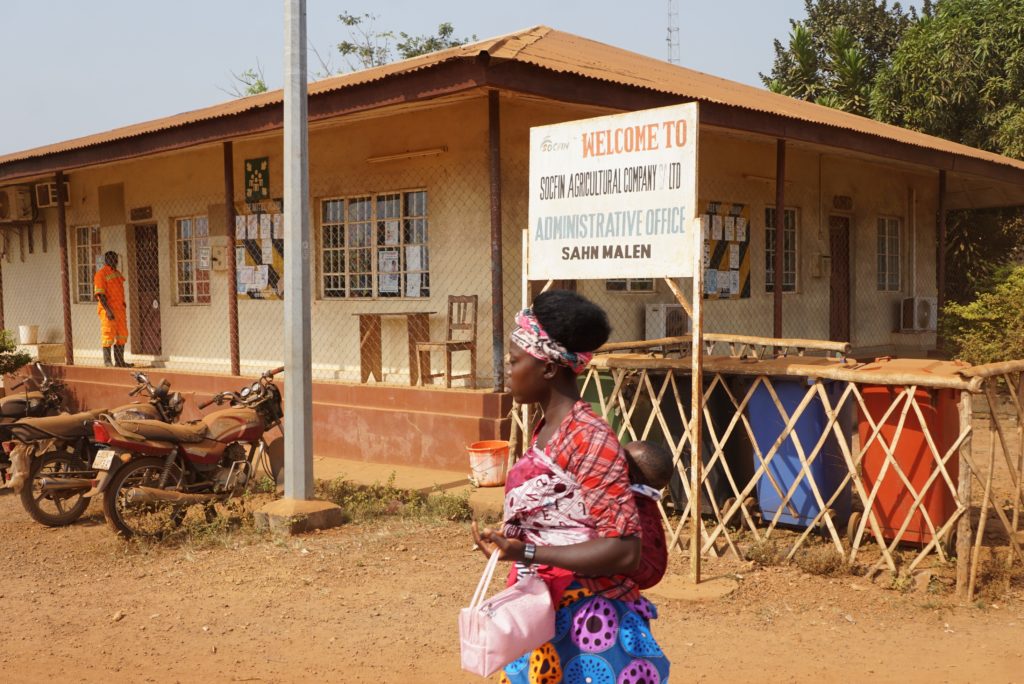
Despite all the controversies besieging its investments in Sierra Leone, last year, SAC was accredited with an initial certification by the Roundtable on Sustainable Palm Oil, the RSPO. The certification means that SAC carries the guarantee that its production meets the accrediting body’s Principles & Criteria – a wide-ranging set of standards that serve as a benchmark for measuring sustainability within the palm oil industry.
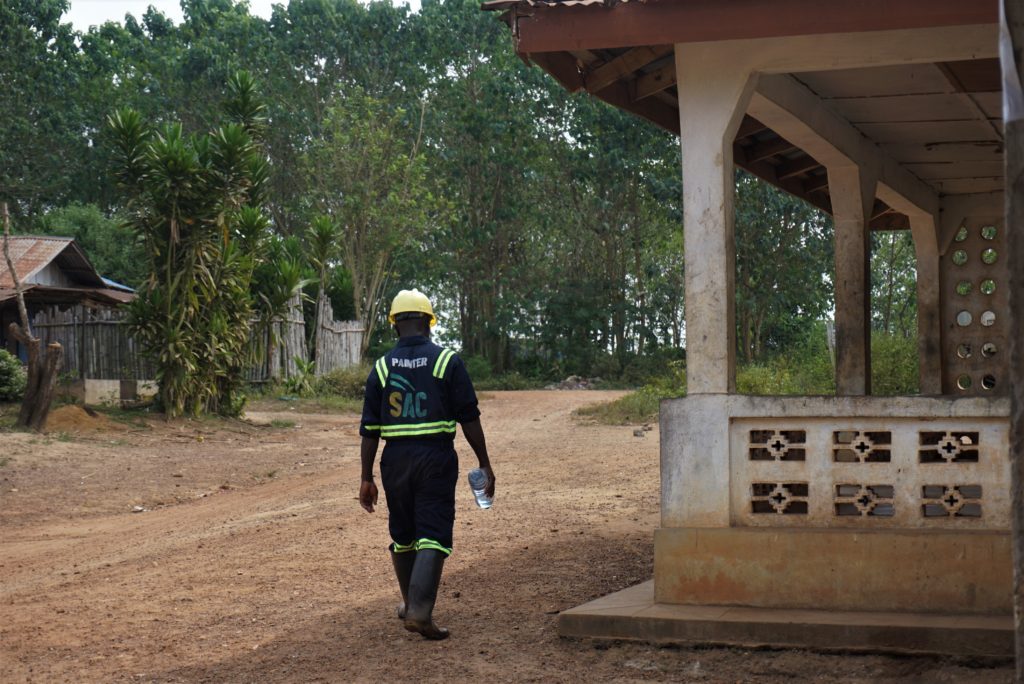
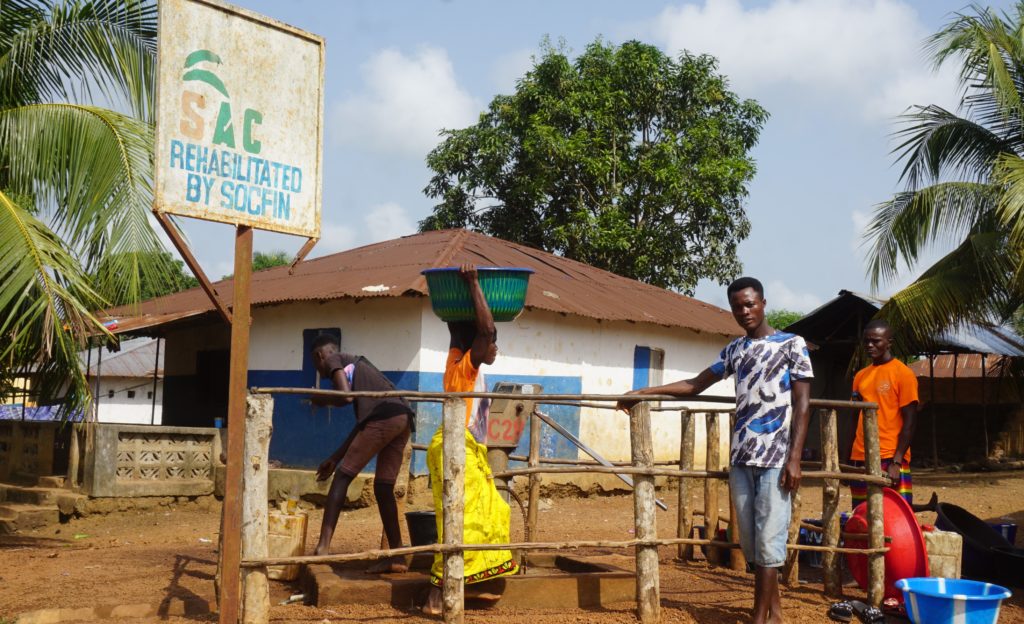
The RSPO certification now means that SAC’s plantation in Malen has some element of permanence about its existence. Currently, the company already employs over 3000 people and all parties to the land conflict in Malen seem to be in agreement about SAC staying.
Even a leaked government’s 2019 report clearly states that all the parties agree “the company should continue with its operations,” but people want to see this happen in an inclusive, respectful, trustworthy and mutually beneficial atmosphere.
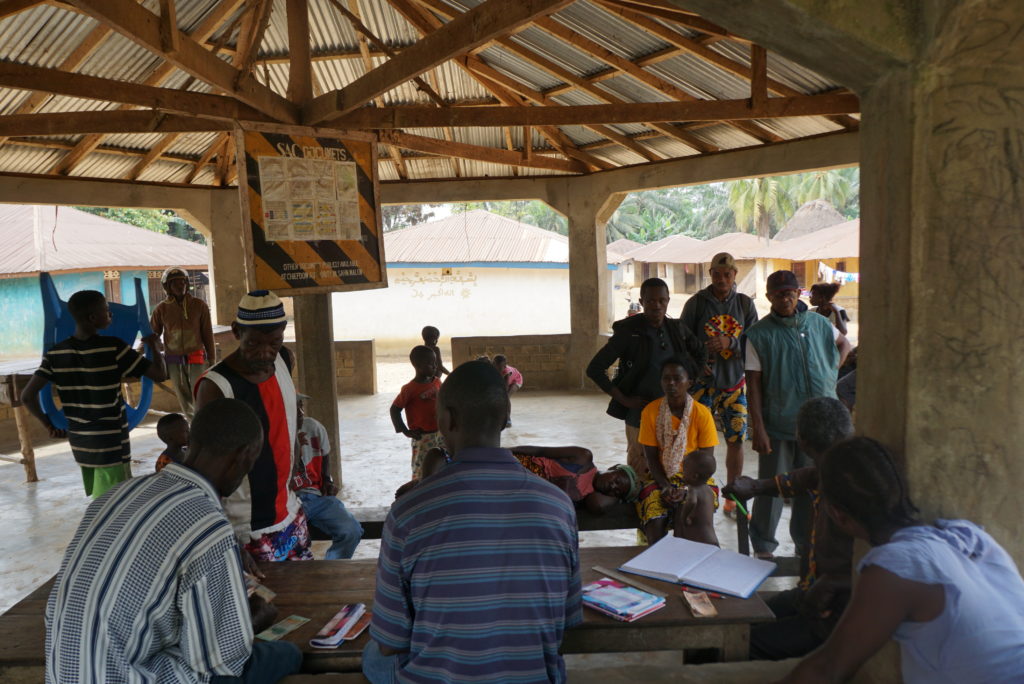
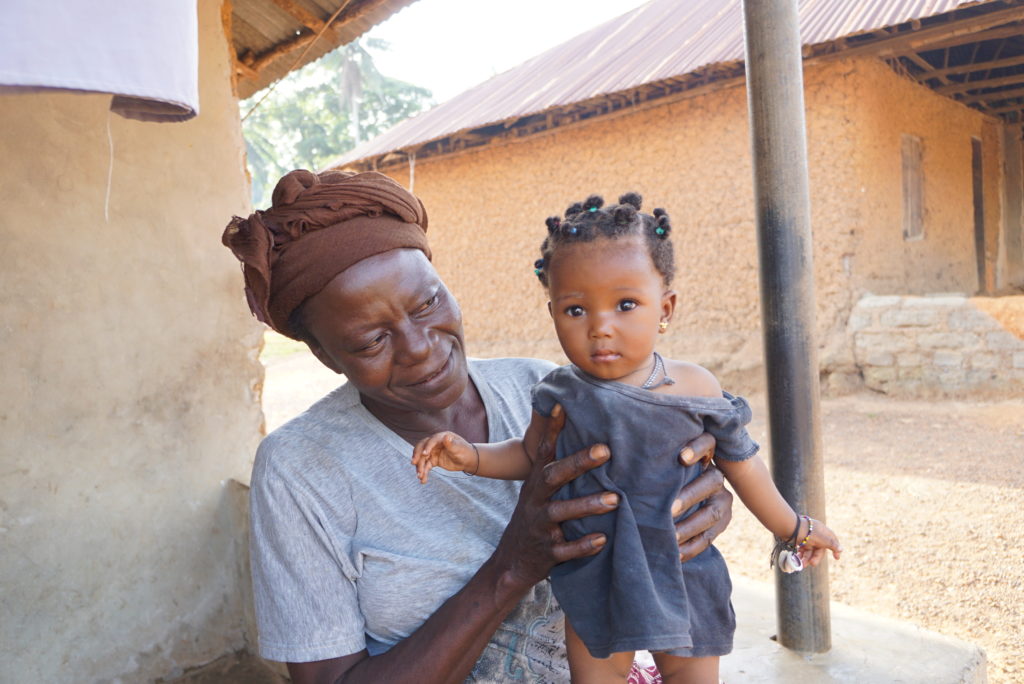
Note: All efforts to get the company to reply to some of the allegations went unanswered.
This story was made possible through funding from Internews’s Earth Journalism Network (EJN)








